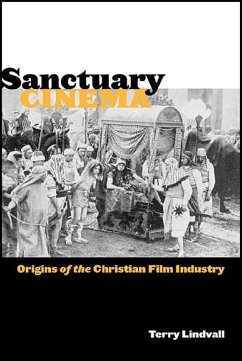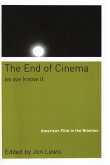Winner of the Religious Communication Association Book of the Year Award for 2008 Sanctuary Cinema provides the first history of the origins of the Christian film industry. Focusing on the early days of film during the silent era, it traces the ways in which the Church came to adopt film making as a way of conveying the Christian message to adherents. Surprisingly, rather than separating themselves from Hollywood or the American entertainment culture, early Christian film makers embraced Hollywood cinematic techniques and often populated their films with attractive actors and actresses. But they communicated their sectarian message effectively to believers, and helped to shape subsequent understandings of the Gospel message, which had historically been almost exclusively verbal, not communicated through visual media. Despite early successes in attracting new adherents with the lure of the film, the early Christian film industry ultimately failed, in large part due to growing fears that film would corrupt the church by substituting an American "civil religion" in place of solid Christian values and amidst continuing Christian unease about the potential for the glorification of images to revert to idolatry. While radio eclipsed the motion picture as the Christian communication media of choice by the 1920, the early film makers had laid the foundations for the current re-emergence of Christian film and entertainment, from Veggie Tales to The Passion of the Christ.
Hinweis: Dieser Artikel kann nur an eine deutsche Lieferadresse ausgeliefert werden.
Hinweis: Dieser Artikel kann nur an eine deutsche Lieferadresse ausgeliefert werden.








